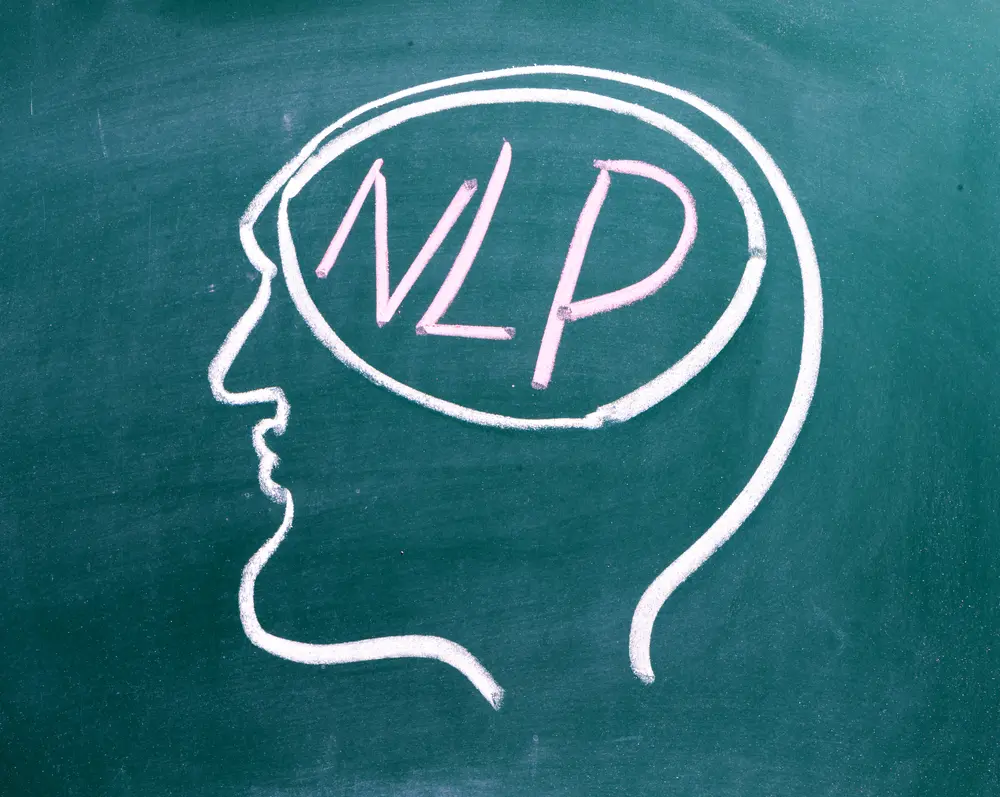Last Updated on June 6, 2023 by Dave Schoenbeck
If you’re wondering, “What is neuro-linguistic programming?” you’re not alone. There are many different definitions of this concept across many other platforms. So instead, it’s better to ask, “What is neuro-linguistic programming, and how can it help me in the workplace?” This introduction to NLP will hopefully answer that question.

Neuro-linguistic programming, or NLP, is a concept that’s sometimes referred to as “the language of the mind.” With this introduction to NLP, we’ll be answering the question of “What is neuro-linguistic programming?” and giving you examples of how you can put it to use.
What is Neuro-Linguistic Programming, and how Does It Work?
So what is neuro-linguistic programming? Neuro-linguistic programming aims to harness the power of thoughts and communication to make your goals a reality.
Neuro-linguistic programming was developed by two men, Richard Bandler and John Grinder, who theorized that by examining the habits of highly successful people, one could replicate the behaviors that made them successful and put them to use in their own life.
This happens by breaking down conscious and unconscious biases and limiting beliefs that keep us from succeeding. The process can take several forms: replacing negative associations with positive ones, changing behavior patterns, setting triggers for certain emotions, or even just mimicking the actions of others we admire.
To thoroughly introduce NLP, let’s look at how this can play out at work. First, business leaders can increase team productivity by becoming more aware of communicating. Body language, for instance, can often subconsciously project a message we might want to avoid. Changing this body language can improve the morale of the entire team.
Another example might be to boost self-confidence by mimicking the behavior of someone you perceive as being extraordinarily confident or by replacing negative self-talk with positive affirmations.
The critical thing to note is that this process is gradual. Often, the smaller habits, replicated over time, end up causing lasting life changes. For example, take Jeff Bezos. Today he’s one of the wealthiest men globally; however, it took years and years of showing up and working to get there.
What Are the Benefits of NLP?
I intend to introduce you to NLP to demonstrate how it can help you in your daily life. Here are just a few of the widely-reported benefits of neuro-linguistic programming:
- Increased productivity
- Stronger sense of self-confidence
- More intentional behavior
- Closer relationships with those around you
- Become more persuasive
- Increased empathy
- Decreased anxiety
- Break bad habits
- Achieve your goals
- Overcome obstacles
Learning to harness neuro-linguistic programming can be the first step towards becoming a better you.
The study of neurolinguistics is fascinating and can help you grow into a more decisive leader. So, if you’re still wondering, “What is neuro-linguistic programming?” after reading this introduction to NLP, fill out my contact form for a complimentary video coaching session, and let’s see what NLP looks like for you.
Coach Dave
- If You Are Considering Starting a Business, Read the Book The E-Myth Revisited First - October 16, 2025
- Here’s a Must-Read Book: The Four Disciplines of Execution - October 9, 2025
- Don’t Procrastinate: It’s Time to Do Company Succession Planning - October 2, 2025


